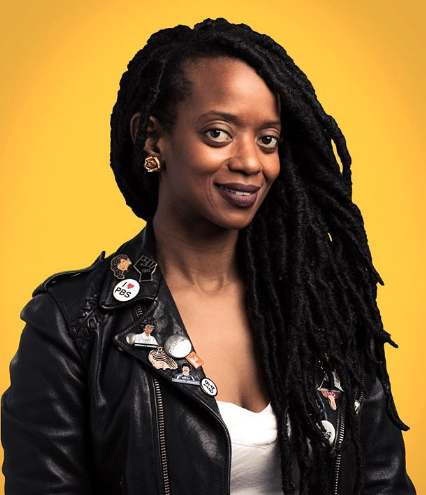
Greetings, Earthling. Welcome to another round of Mental Health Monday, your weekly dose of stories, resources, and motivation for your everyday life. Ready for another week of not being Janet Jackson while having several other somewhat redeeming qualities? Great.
On the last roundup, we shared stories about a mental health app helping young Black folks connect to mental health care and support, navigating romance while navigating mental illness, how one pastor is going beyond prayer to address mental and emotional challenges, and much more. Have a gander.
THIS WEEK'S GOODNESS
As part of Men's Mental Health Month, head to Twitter on June 27 at 6PM (ET)/3PM (PT) for #YouGoodMan: Justice and the Mental Health of Black Men and Boys: more info here
"How The Church Failed My Mother’s Mental Health" by Terrance Thomas [HuffPo]
I don’t remember when I first noticed my mother’s depression. Nor can I point to the exact moment(s) in her life that triggered her illness. But I’m certain that poverty, motherhood, workplace stress, and deep-seated childhood traumas were contributing factors. In her most vulnerable moments, my mother found solace in her Bible.
"TWiBPrime #946: Depression, James Comey, and McCain" by Elon James & Dara M. Wilson
"Struggle of Mental Health in the Black Community" by Sherri Williams, Ph.D. [Self]
Depression has been a constant part of my life since then. A lot of people don’t know that. Like most black people it’s not something I talk about openly with everyone. I’m already black, a woman, and overweight. Why add another stigmatized identity?
"After 40 Years of Staying Silent About My Depression, Last Week I Told the Whole World" by Sherri Williams, Ph.D. [Self]
For years people told me they saw me as a strong black woman. I always hated being associated with the strong black woman archetype because it’s an unhealthy and unrealistic myth that forces black women to carry the world on our backs while crumbling inside and not being allowed to talk about it.
"A Beginner's Guide To Starting Therapy" by Heben Nigatu [Buzzfeed]
Most therapists will ask new patients a few questions that help them understand what the patient wants from therapy. Lindau says she asks patients what they would like to talk about, when the issue began, and how often they feel it affects them. "I want to know how they decided to call me, and that question usually elicits the description of their reasons for calling," she says. This is an important time for potential therapists to learn about you, but the reverse is true too.
Are you a Black mental health professional? Do you know one? Alex is building a hub for Black wellness. Learn how you can be down.





























